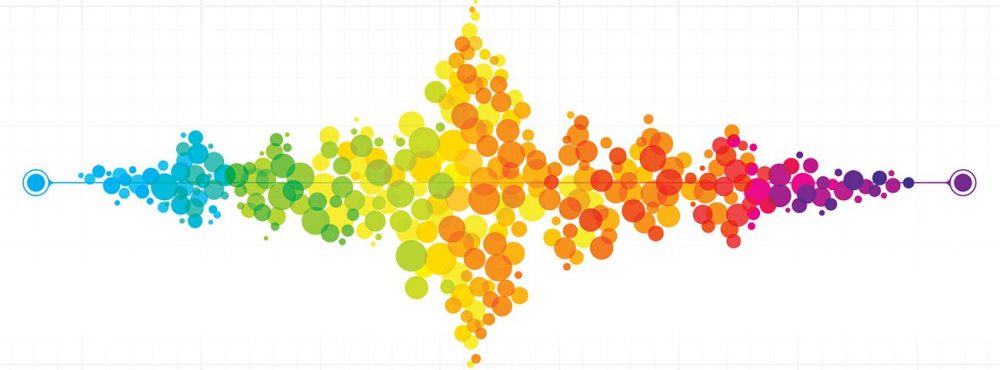
Statistics is the science of inferring knowledge from data and describing uncertainty in those inferences. It plays a central role in scientific research, social policy, and governance. The Department of Statistics has a world-class record of success in education, research and service and has an out-sized impact on campus because of its engagement in educating students in all disciplines and interdisciplinary research. Learn more about our applied and interdisciplinary research impact as well as our long list of research collaborations and interactions here.
Faculty Research Areas
Dan Cooley
Statistics + Probability Research
- Extreme value analysis
- Tail dependence
- Risk of rare events
- Heavy tails
- Modeling
Applied + Interdisciplinary Research
- Atmospheric science
- Climate modeling
- Energy-related environmental research

Kirsten Eilertson
Statistics + Probability Research
- Applied statistics
- Generalized linear mixed models
- Latent variable and state space models
Applied + Interdisciplinary Research
- Behavioral neuroscience
- Biomechanics
- Functional genomics
- Quantitative epidemiology
- Generally public heath and medicine

Yawen Guan
Statistics + Probability Research
- Spatial and spatiotemporal statistics
- Computer model emulation and calibration
- Bayesian hierarchical modeling
- Computational methods for large data
Applied + Interdisciplinary Research
- Climate and environmental research
Dongzhou Huang
Statistics + Probability Research
- Reflected brownian motion
- Optimal stopping
- Excursion theory
- Malliavin calculus
- Statistical inference for stochastic processes
Applied + Interdisciplinary Research
- Financial mathematics
Ann Hess
Statistics + Probability Research
- Applied linear models
- Bioinformatics and statistical collaboration
Applied + Interdisciplinary Research
- Applied statistics and biostatistics across a broad range

Andee Kaplan
Statistics + Probability Research
- Computationally scalable statistics methods
- Record linkage (Entity resolution or de-duplication)
- Markov chain monte carlo (MCMC)
- Network analysis
- Spatial re-sampling and generalized statistical machine learning methods
- Interactive statistical graphics
- Reproducible research
Applied + Interdisciplinary Research
- Social sciences
- Data with network structures
- Multiple source data
Kayleigh Keller
Statistics + Probability Research
- Environmental biostatistics
- Spatiotemporal modeling
- Measurement error
- Spatial confounding
- Hierarchical models
Applied + Interdisciplinary Research
- Public health
- Air pollution epidemiology
- Environmental engineering
- Infectious disease
Piotr Kokoszka
Statistics + Probability Research
- Models for dependent data
- Asymptotic theory
- Functional data analysis
- Time series
- Spatio-temporal statistics
- Change point analysis
- Extreme value theory and heavy tails
Applied + Interdisciplinary Research
- Finance
- Climate science
- Physical networks
- Space physics

Matt Koslovsky
Statistics + Probability Research
- Bayesian methodology
- Nonparametric Bayes
- Variable selection
- Statistical computing
- Markov models
Applied + Interdisciplinary Research
- mHealth
- Public health
- Cancer Prevention
- Microbiome
- Nutrition
Mary Meyer
Statistics + Probability Research
- Nonparametric function estimation with constraints involving shapes and orderings with likelihood-based inference methods
- Generalized additive models
- Robust regression
Applied + Interdisciplinary Research
- Discrete choice models in economics
- Shape selection in forestry models

Ben Shaby
Statistics + Probability Research
- Spatial statistics
- Bayesian modeling
- Bayesian computation
- Extreme values
Applied + Interdisciplinary Research
- Climate and weather
- Geophysics
- Neurodegenerative diseases like Alzheimer’s and ALS
- High-throughput biological data
Haonan Wang
Statistics + Probability Research
- Object oriented data analysis
- Functional data analysis
- Functional dynamic modeling
- Spatial and spatiotemporal modeling
- Statistical learning for big data
- Time series
- Statistical modeling for complex networks
Applied + Interdisciplinary Research
- Neuroscience
- Communication networks
- Sensor data
Tianying Wang
Statistics + Probability Research
- Measurement error analysis
- Quantile regression
- High-dimensional statistics
- Data Integration
Applied + Interdisciplinary Research
- Statistical Genetics
- Multi-omics
- Climate Change Detection and Attribution
Yunpeng Zhao
Statistics + Probability Research
- Statistical modeling for complex networks
- Statistical machine learning
- High-dimensional statistics
Applied + Interdisciplinary Research
- Genetics and genomics
- Quantum computing
Tianjian Zhou
Statistics + Probability Research
- Bayesian methodology and computing
- Bayesian hierarchical modeling
- Bayesian nonparametrics
- Bayesian hypothesis testing
- Methodology for missing data
Applied + Interdisciplinary Research
- Clinical trials
- Genomics
- Infectious diseases
Wen Zhou
Statistics + Probability Research
- High dimensional inference
- Statistical machine learning
- Graphical modeling
- Statistical genomics and genetics
- Bioinformatics
- Inverse problems
- Multivariate time series
Applied + Interdisciplinary Research
- Genetics and genomics
- Proteomics and structure biology
- Omics analysis
- Integrative analysis
- System biology
- Econometrics and finance













